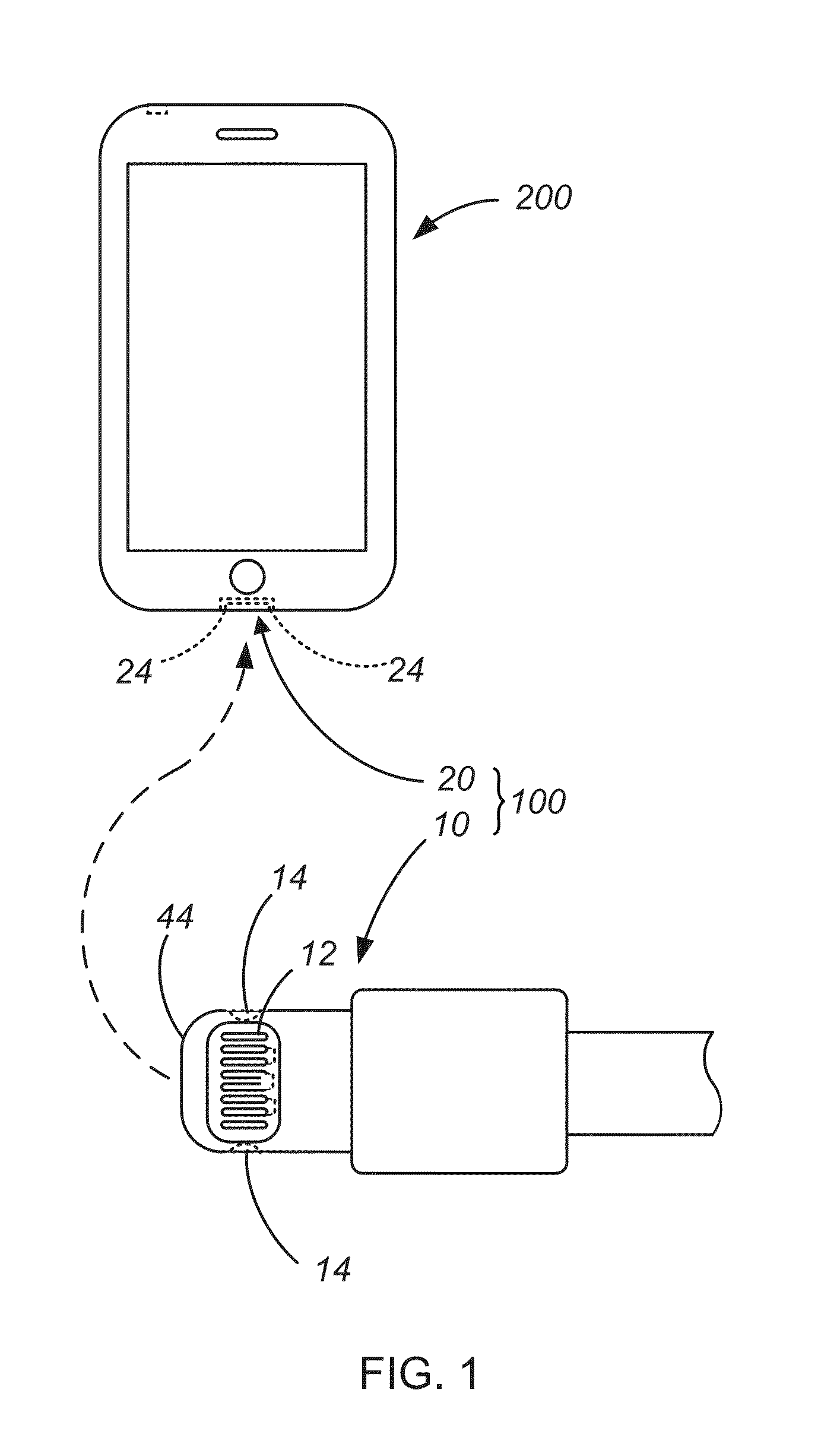Retention mechanism device
a technology of a retention mechanism and a spring arm, which is applied in the direction of coupling device details, coupling device connection, coupling/disengagement of coupling parts, etc., can solve the problems of electrical contacts not fully engaged, electrical plugs can be partially removed, electrical contacts can be inadvertently misaligned, etc., to reduce the stress in the spring arm and reduce the stress in the arm. , the effect of easy assembly
- Summary
- Abstract
- Description
- Claims
- Application Information
AI Technical Summary
Benefits of technology
Problems solved by technology
Method used
Image
Examples
Embodiment Construction
[0039]The present invention will now be described in detail with reference to certain embodiments thereof as illustrated in the accompanying drawings. In the following description, numerous specific details are set forth in order to provide a thorough understanding of the present invention. It will be apparent, however, to one skilled in the art, that the present invention may be practiced without some or all of these specific details. In other instances, well known details have not been described in detail in order not to unnecessarily obscure the present invention.
[0040]In order to better appreciate and understand the present invention, reference is first made to FIG. 1 which is a simplified schematic representation of connector device 100 having a retention latch mechanism according to an embodiment of the invention. It is worth noting that the components in FIG. 1 are not drawn to scale. As shown in FIG. 1, connector device 100 includes a plug connector 10 compatible with a corr...
PUM
| Property | Measurement | Unit |
|---|---|---|
| angle | aaaaa | aaaaa |
| thick | aaaaa | aaaaa |
| thick | aaaaa | aaaaa |
Abstract
Description
Claims
Application Information
 Login to View More
Login to View More - R&D
- Intellectual Property
- Life Sciences
- Materials
- Tech Scout
- Unparalleled Data Quality
- Higher Quality Content
- 60% Fewer Hallucinations
Browse by: Latest US Patents, China's latest patents, Technical Efficacy Thesaurus, Application Domain, Technology Topic, Popular Technical Reports.
© 2025 PatSnap. All rights reserved.Legal|Privacy policy|Modern Slavery Act Transparency Statement|Sitemap|About US| Contact US: help@patsnap.com



